Modern timber construction: modular buildings for local authorities
On 6 September 2024, the Cultural Centre in Pruszków hosted a conference entitled. ‘Improvements to the investment process in the construction industry’. The event was organised by the Mazovian District Chamber of Civil Engineers, in cooperation with the Pruszków District Mayor and the District Building Control Inspectorate. During the conference, Kamil Kowalczyk, Member of the Unihouse Management Board, presented the topic "Modern Wooden Construction. Modular Buildings for Local Authorities", which attracted a lot of interest from both construction industry representatives and local authorities.
Modular Buildings: An Innovative Solution for Local Authorities
Modular buildings are becoming increasingly popular, especially in the context of public investments. In his speech, Kamil Kowalczyk emphasised that modular timber buildings are the future of local authority investments. Their use in public building construction enables faster project implementation, greater flexibility in adapting solutions to local needs and significant cost savings.
Projects such as:
- the extension of a school in Pruszków - The new school building was constructed from 50 prefabricated modules, which took just five days to assemble. This increased the usable floor space of the school by approx. 2,600 m² and provided modern classrooms, an enlarged common room, a larger staff room, a library and a canteen with kitchen facilities.
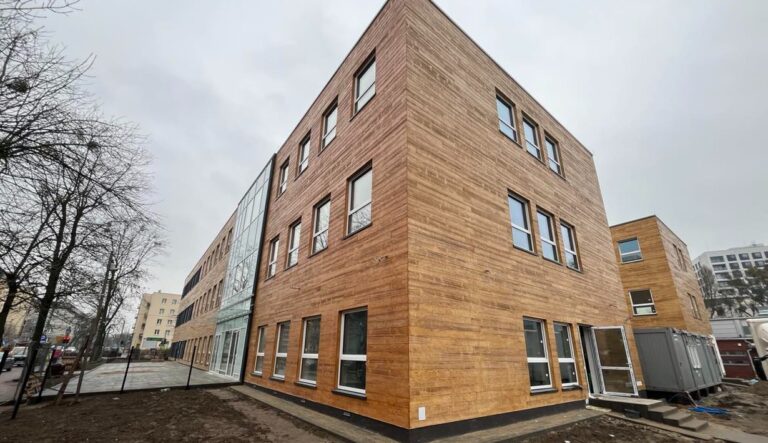
-
A crèche in Ciechanów - is being built with funding from the KPO. The 1259.41 m² building will be equipped with a ground source heat pump and photovoltaic panels, highlighting its eco-friendly nature. Thanks to prefabricated wooden modules, the investment will be completed in record time - in less than a year from the start of construction! The new nursery, which will accommodate 100 children, will significantly increase the availability of childcare, supporting young families and their return to work.
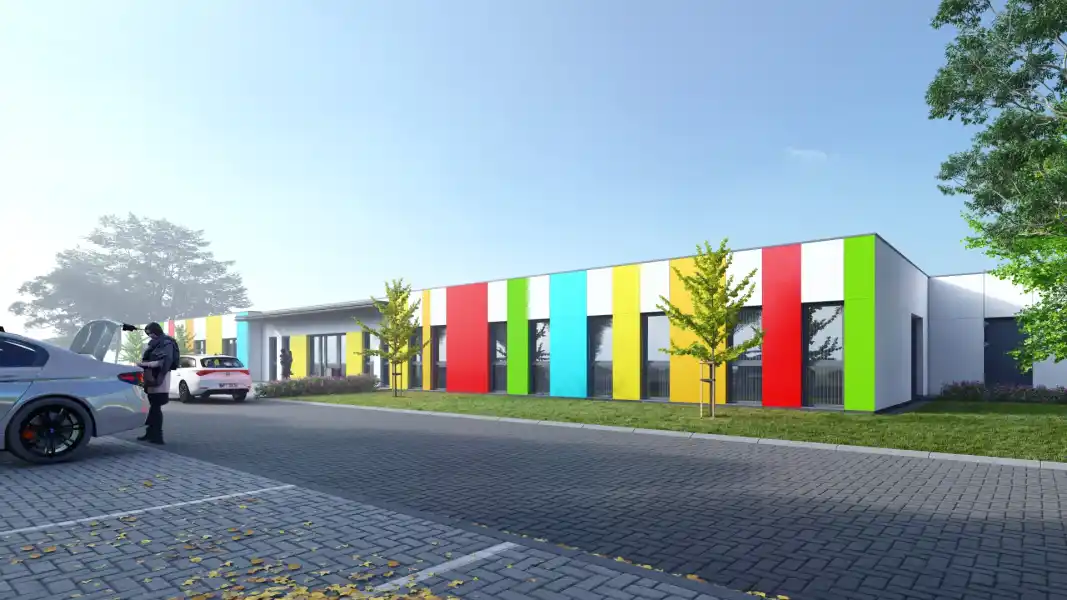
-
kindergarten on Silnikowa Street in Warsaw - A modern kindergarten, built quickly and efficiently using modular technology. The usable area of the entire building is 1394.32 m2. In addition, a staircase, lift shaft and technical rooms made using traditional technology were used to meet a variety of needs.
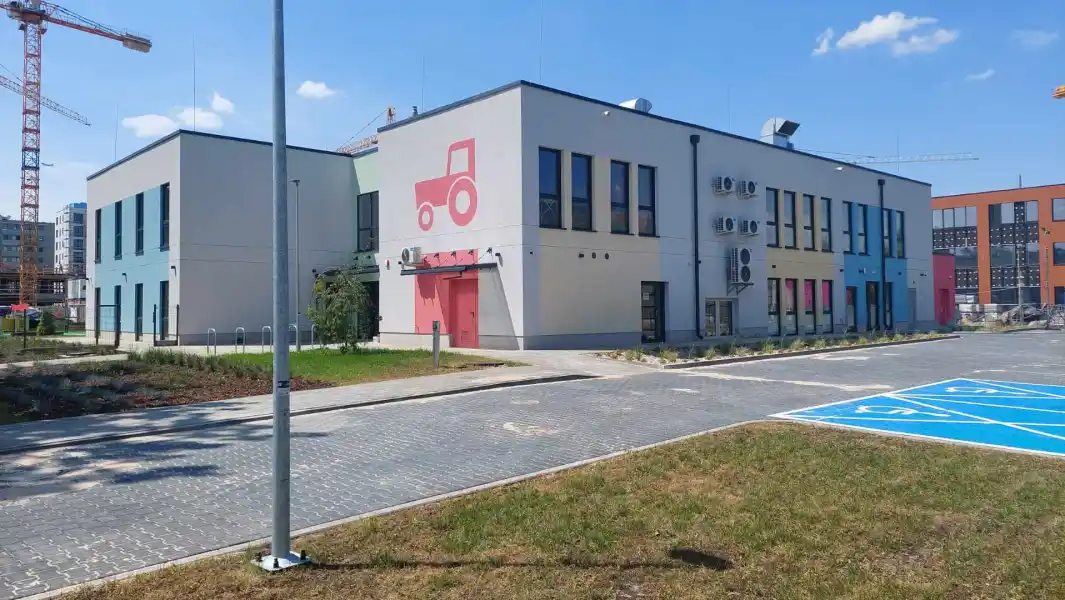
-
Crèche on Ku Rzeka Street in Warsaw - The subject of the contract was the design and construction, using prefabricated timber frame technology, of an energy-efficient crèche building comprising 6 wards, intended for approximately 150 children, together with landscaping.
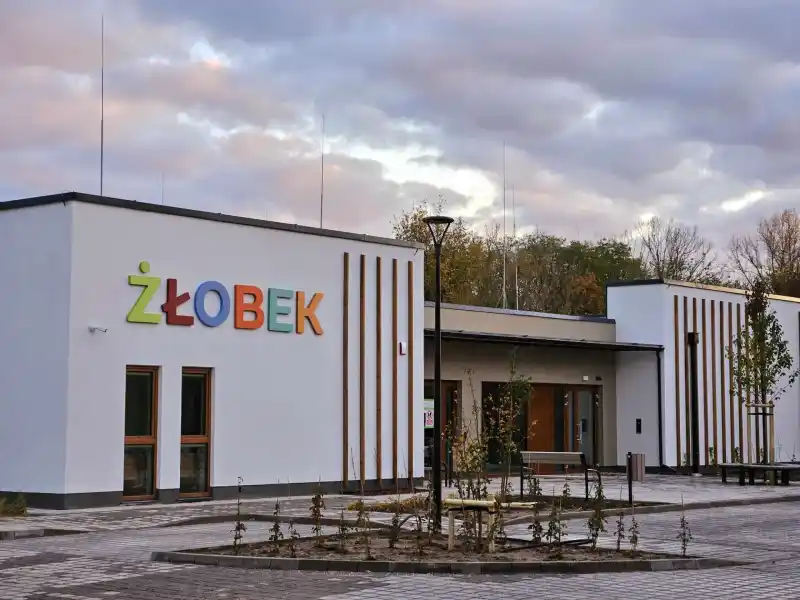
- a multi-family municipal building in Kamienna Góra - the 28-unit building offers 24 flats ranging from 30 m² to 63 m², with a total usable floor space of around 1,600 m². The foundation in the form of a garage was built in just a few months. Heat pumps provide the heating, and photovoltaic panels on the roof power the technical equipment and lighting in the stairwells. This is the first council housing project in Poland to be completed with the help of funds from the Surcharge Fund and KPO, with an emphasis on higher energy efficiency.
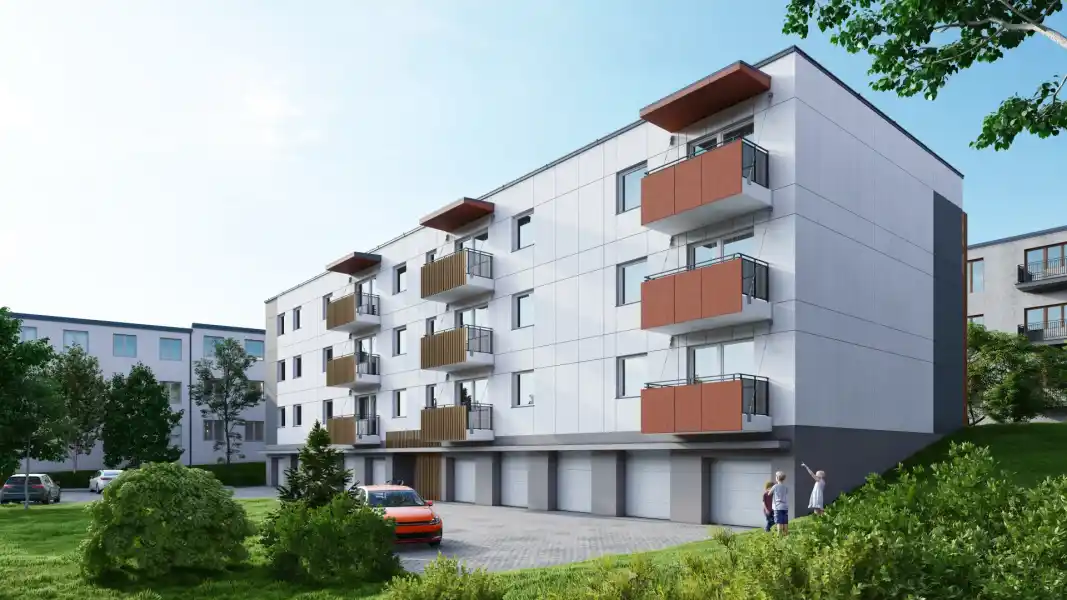
show that modular construction can respond effectively to the needs of local communities, providing quick and modern architectural solutions.

The Do No Significant Harm principle and KPO funds
One of the key aspects discussed during the conference was the application of the Do No Significant Harm (DnSH) principle , which plays an important role in the possibility of using funds from the National Reconstruction Plan (NRP). This principle ensures that the investments carried out do not cause significant harm to the environment, allowing for the responsible use of EU funds. Unihouse relies on ecological and sustainable construction technologies when implementing projects for local government units (LGUs), which is in line with the sustainable development policy.
Modular Construction and Public Investment
Modular construction for TSUs is the answer to the growing demand for fast and efficient public investments. The solutions offered by Unihouse enable project times to be reduced by up to 30% compared to traditional construction methods. Building modules are prefabricated in factories, which eliminates the impact of weather conditions on the construction schedule and increases the precision of construction.
Fire safety and energy efficiency
The conference also addressed important issues related to the fire safety of modular timber buildings. Paweł Sulik from the Building Research Institute discussed the new safety standards, which are fully compliant with current national and EU standards.
In addition, Paweł Karpiński from Bank Gospodarstwa Krajowego presented the possibilities of financing investments in energy-efficient buildings. Thanks to the use of modern technologies, modular wooden buildings can meet the requirements for low energy consumption, which is crucial in the context of combating climate change.
Summary
Our participation in the conference ‘Streamlining the investment process in the construction industry’ highlighted how innovative modular solutions for local authorities are an important part of the development of the construction industry in Poland. Unihouse's sustainable and environmentally friendly projects represent the future of the construction sector and an effective solution to the needs of local communities.
The event was an excellent opportunity to share experiences and discuss the future of modular construction in Poland. We are pleased to be able to actively support the development of modern construction technologies that respond to the challenges of modern local governments.
Information
© 2022 UNIHOUSE SA All rights reserved. | Design Sensorama





